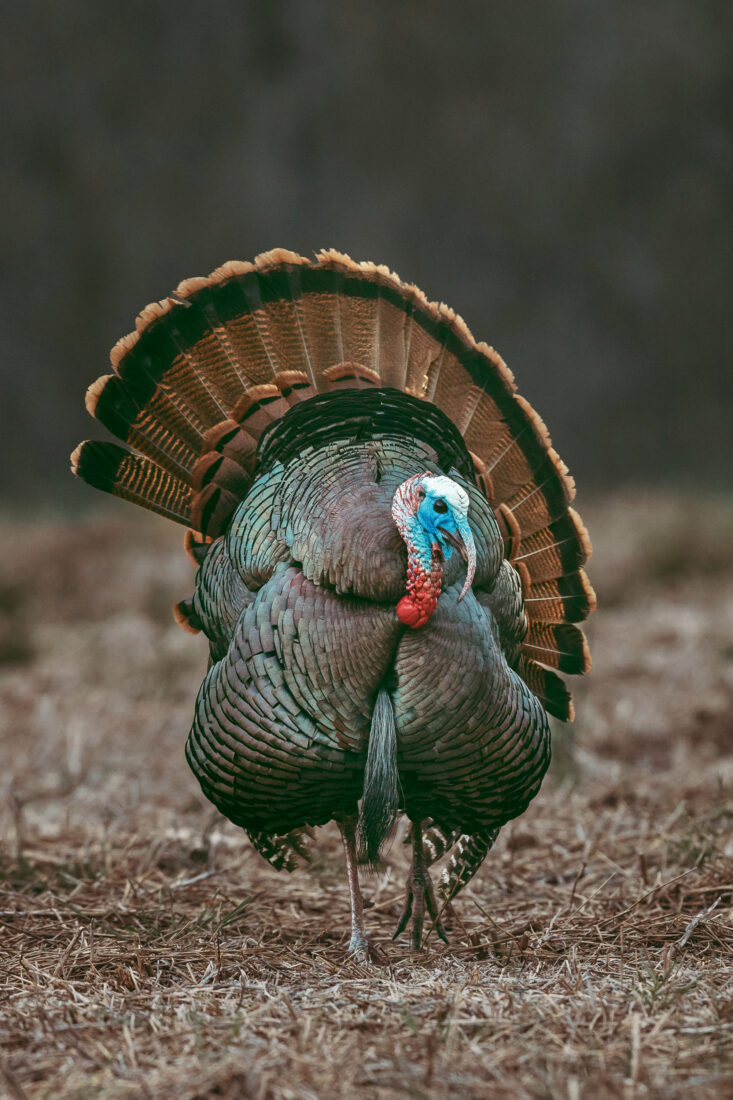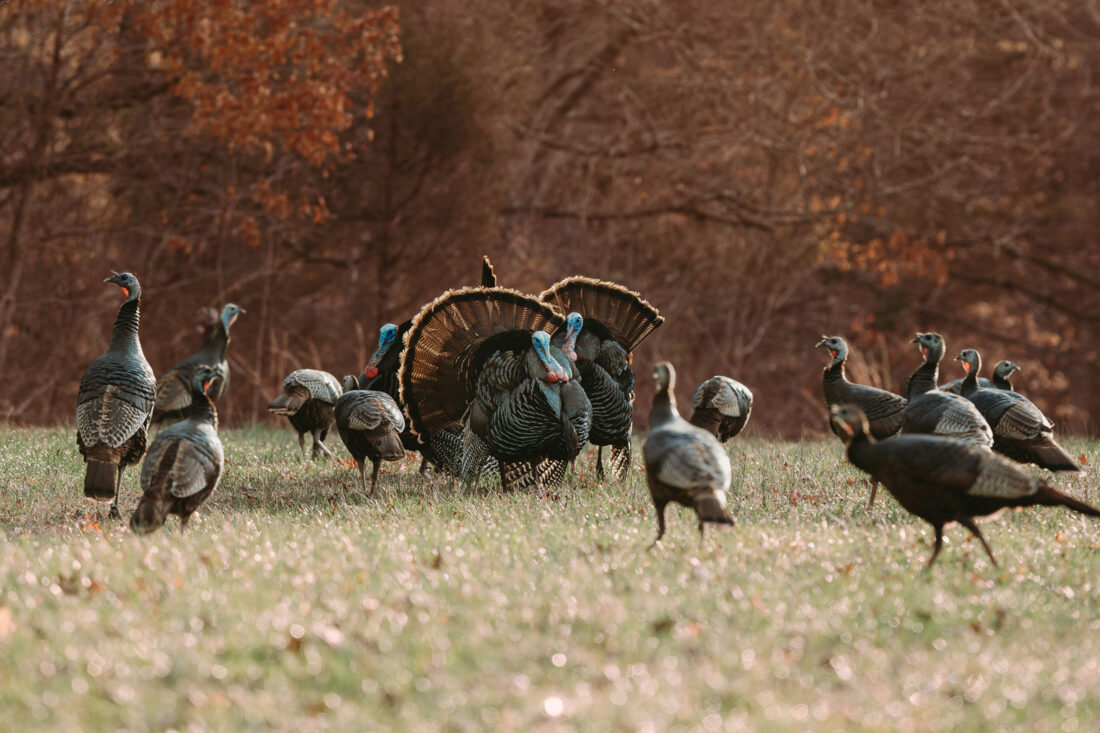Georgia has done it. So have Tennessee, Alabama, Arkansas, and Mississippi. South Carolina is considering doing it for the second time in recent years, with changes that would go into effect in 2025. Across the South and beyond, states are tightening regulations on wild turkey hunting, seeking to help stem an alarming decrease in bird numbers.
The comeback of wild turkeys has been one of modern wildlife conservation’s great successes. Thanks to massive transplanting efforts across the country, turkeys rocketed from abysmally low populations in the mid-twentieth century to healthy numbers across the bird’s range. But steep declines over the past several years have hunters and biologists worried. Potential culprits for the bird’s challenges include an array of factors, from loss of habitat to changing climate to increased mortality from predators like coyotes. Most recently, turkey harvests by hunters are getting added scrutiny.
In the Palmetto State, the Department of Natural Resources has proposed pushing back the opening date for wild turkey season by a week and a half, trimming the number of days, and dropping the season limit from three gobblers to two. Other states have also adjusted season starts and limits and reduced the number of nonresident turkey hunters in an attempt to turn around the bird’s fortunes. As a result, many concerned hunters are having a moment of serious reflection, asking questions that would have seemed absurd half a decade ago. Are there changes I can make in my own hunting choices to help these birds bounce back? Is it time to rethink my gobbler game plan?
“This kind of self-policing is now frequently brought up in my circle of hunters,” says Mike Chamberlain, a professor of wildlife ecology and management at the University of Georgia and one of the country’s leading turkey researchers. As turkey populations grew by leaps and bounds, Chamberlain figures, a mindset grew as well that it was nearly impossible to shoot too many birds. But the swelling numbers also attracted more and more hunters. And in many areas, additional opportunities for youths, veterans, and hunters with special needs have been tacked onto the weeks before the regular season, creating “seasons within a season” when male turkeys are at their most vulnerable.

One of the major points of discussion is the start date of spring turkey-hunting seasons. Tom turkeys gobble most often during the breeding season in spring, when sex-addled males lose some of their famous wiles, making them more susceptible to hunters. When a hunter removes a mature, dominant breeder from a local population before it has time to mate, “there are potential disruptions to the breeding process,” Chamberlain says. “The science shows that you can time hunting seasons to have a minimal effect on overall turkey population numbers, but there has been a lot of pressure on wildlife managers to open seasons as early as possible. Many of the changes we’re seeing now are aimed at limiting that early harvest.”
Many Southern hunters have long brought to the field a personal conservation ethic that goes beyond the letter of the law. The choice to avoid shooting singles from a flushed quail covey, for instance, and wrapping up a quail hunt in midafternoon to give bobwhites a chance to regroup and roost communally are time-honored traditions. Many duck clubs don’t allow waterfowl hunting in the afternoons so ducks and geese can settle into roosting sites unimpeded. When waterfowl numbers cratered in the 1980s, an ethic of “drakes only” became pervasive. That’s still the case in many conservation-oriented clubs.
As for turkeys, most hunters fail to kill a bird. In fact, a small percentage of hunters take a significant portion of the overall harvest, Chamberlain says, and an even smaller subset of them kill more than one bird. That means that the most avid, successful hunters can have a role to play in helping turkey populations rebound. When those accomplished hunters, many of whom travel widely to hunt, pump the brakes on their season’s take, the reduced harvest of breeding birds may just help a local population put more chicks on the ground.
State wildlife departments recognize this. Mississippi has tightened its grip on nonresident tags, as have several states out west such as Nebraska. While that’s caused plenty of grousing among some hunters, Chamberlain has talked to many hard-core turkey chasers who have shelved their typical plans of applying for multiple tags in different states, or decided to take only a single bird from their local area, and remained grateful for the opportunity.
“As we continue seeing population declines,” he says, “I think we have to ask ourselves as turkey hunters if we’re willing to be part of the solution. To me, the answer has to be yes.”
T. Edward Nickens is a contributing editor for Garden & Gun and cohost of The Wild South podcast. He’s also an editor at large for Field & Stream and a contributing editor for Ducks Unlimited. He splits time between Raleigh and Morehead City, North Carolina, with one wife, two dogs, a part-time cat, eleven fly rods, three canoes, two powerboats, and an indeterminate number of duck and goose decoys. Follow @enickens on Instagram.








